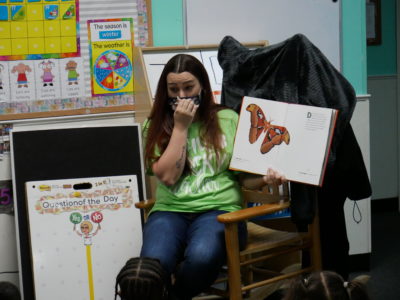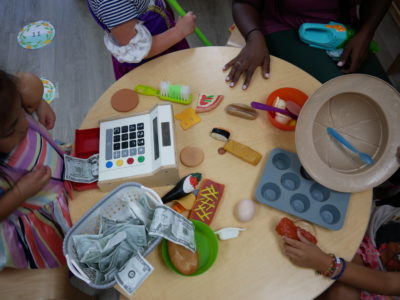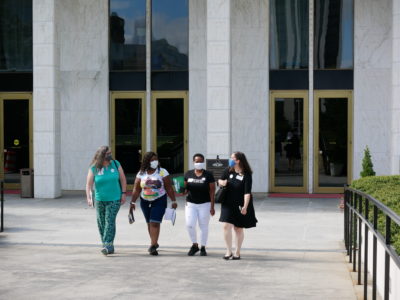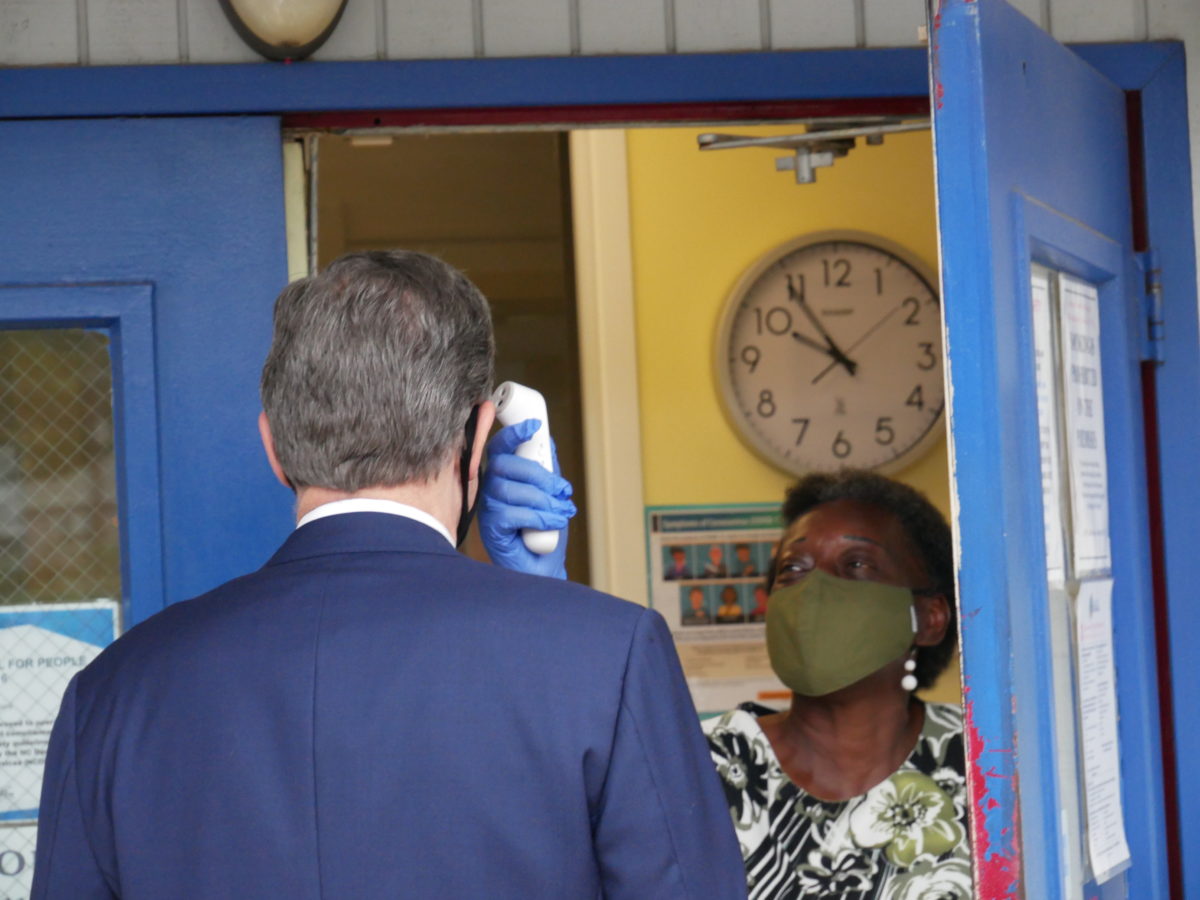

Child care center director Anna Mercer-McLean is looking for a teacher for an NC Pre-K classroom, but no one’s showing up to interviews. The pay isn’t competitive.
She plans to use funding from statewide stabilization grants, which open for providers to apply Monday, to raise wages for her staff.
“Having the opportunity to have more people come into the field means we need to pay competitive salaries,” Mercer-McLean said Thursday in front of her center, the Community School for People Under Six in Carrboro.
Gov. Roy Cooper, Congressman David Price, and Susan Gale Perry, chief deputy secretary of health and human services, stood next to Mercer-McLean to announce the rollout of the grant funding, which totals $805 million.

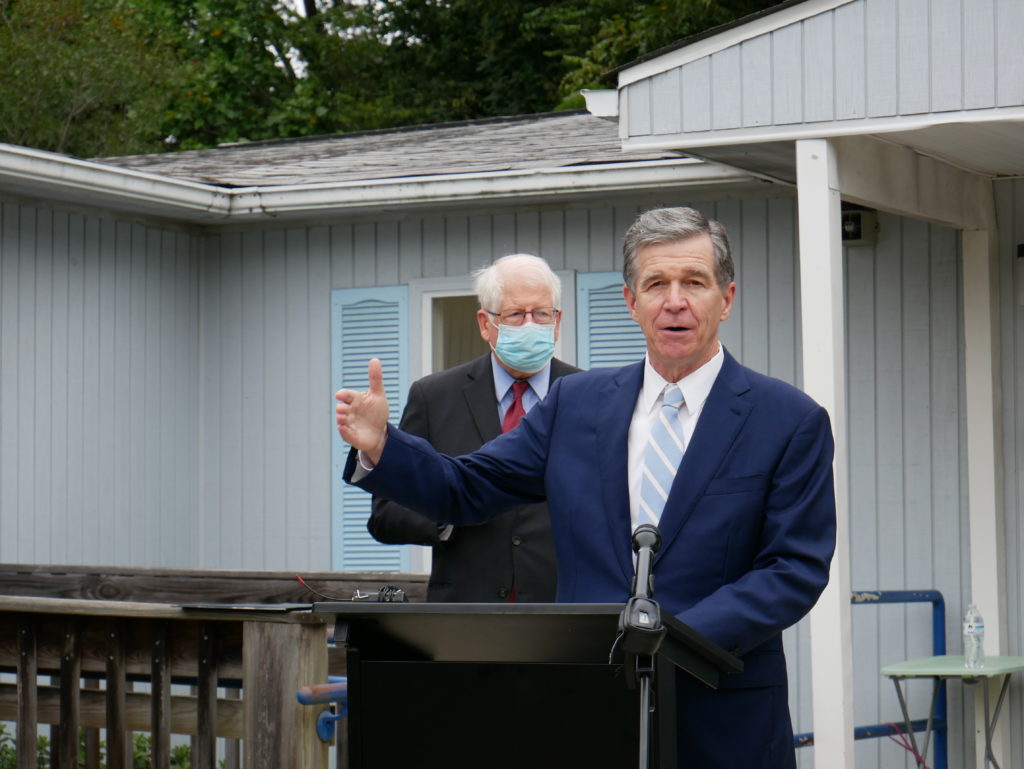
Gov. Roy Cooper talks about the importance of child care for working families and school readiness. 
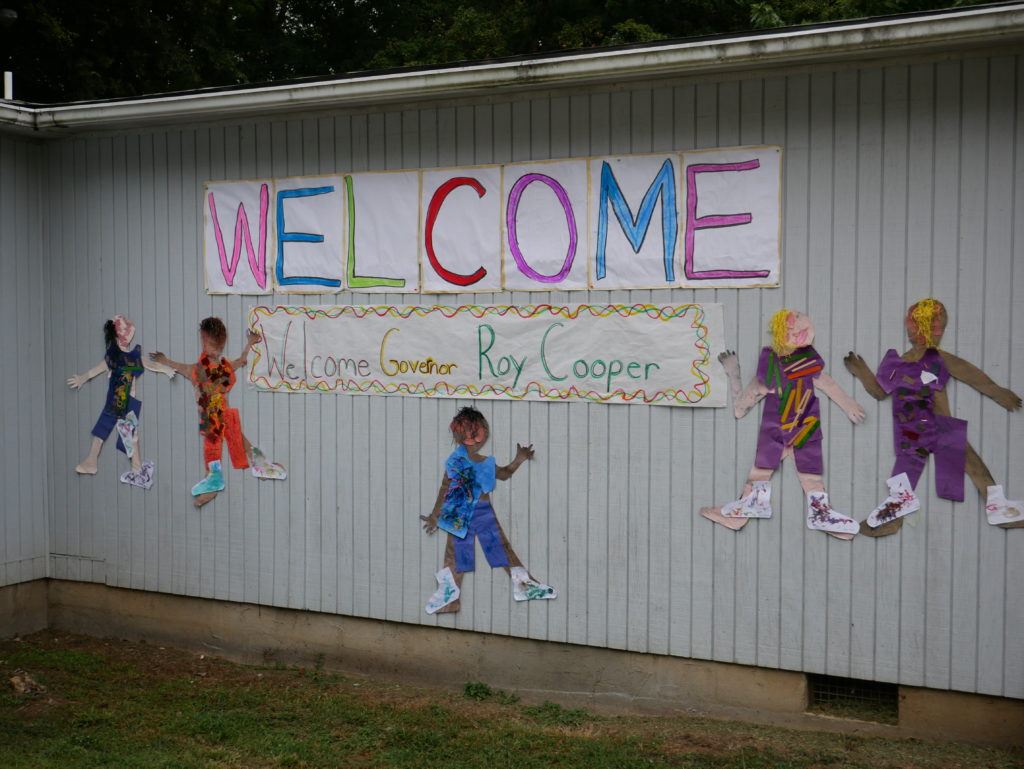
Community School for People Under Six welcomes the governor.
Unlike previous pandemic grants, these funds require an application. Child care providers can find the application starting at 9 a.m. Monday at ncchildcare.ncdhhs.gov.
Perry said the grants will range from $3,000 to $60,000 per quarter. Programs will start receiving funds in mid-November and can use the money to pay staff or provide benefits, repair facilities, buy materials, provide mental health supports, and more.
The money comes from the federal American Rescue Plan, passed by Congress in March. Another $503 million from the law was allocated to North Carolina child care. The state budget, now under negotiation between legislative leaders and Cooper, will include details on how that funding will be spent.
“One thing I know is that child care providers have been a critical link for parents and for employers, making sure that our workforce is able to function,” Cooper said.
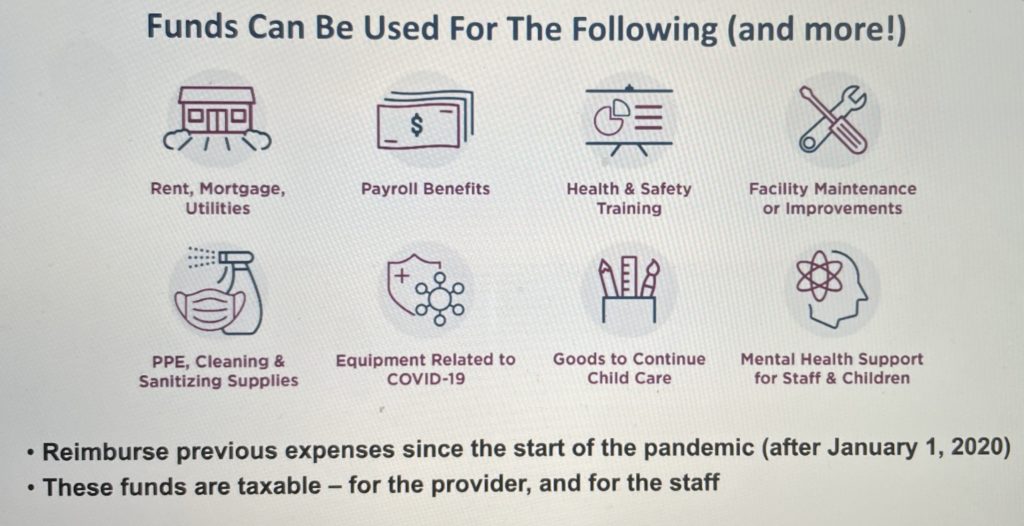

Long-term problem
The funding will last for 18 months. Meanwhile, Congress is debating a proposal from President Biden that includes large child care investments, with aims to ensure that parents pay no more than 7% of their income and child care workers are paid a minimum of $15 an hour.
“These gaps aren’t going to be totally dealt with by this funding, and I want to use this occasion to point out the longer-term character of these needs,” Price said. “These gaps in America’s caregiving infrastructure are related to the pandemic, but they’re not just pandemic problems.”
In 2019, the median wage for child care workers in the state was $10.62. For preschool teachers, the median was $12.83. And for kindergarten teachers, it was $27.89.
Yet program directors cannot raise prices without losing parents. In North Carolina, the average annual cost for infant care in a center was $9,254 in 2018.
“Finding affordable, high-quality, and safe child care should not break family budgets,” Price said.
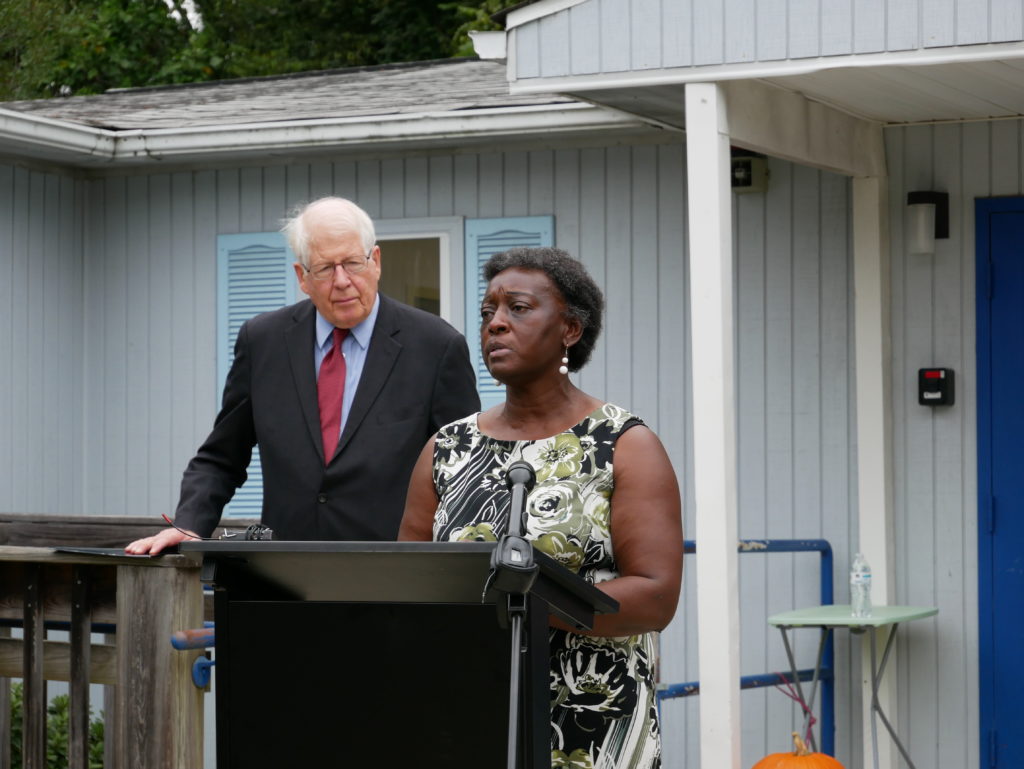

What’s next for providers?
Though providers can start to apply for the grants Monday, they won’t know exactly how much they will receive for a couple of weeks, said Kristi Snuggs, deputy director of the Division for Child Development and Early Education. The division will host webinars on those details when the allocation formula is complete.
The base amount that providers receive will depend on the size of the program, Snuggs said. An additional layer of funding will factor in the facility’s quality in the state’s rating system, how many children the facility serves in the subsidy program, how many infants and toddlers the program serves, and community factors such as how much parents can pay.
Providers must opt in for another portion of funds if they agree to use them to raise compensation. Programs can either provide bonuses to teaching and non-teaching staff or increase their staff’s base pay and/or provide benefits. Providers will receive more funding if they choose the second option.
Fully funded public programs, like Head Start and school-based pre-K, are not eligible for the grants. Facilities that are private (for-profit or nonprofit), home-based programs, and faith-based programs are eligible. Facilities are eligible even if they receive some public funds such as subsidy, NC Pre-K, or Head Start.
Providers can reach out to their regional Child Care Resource and Referral agency for help with the application or questions about the grants.


